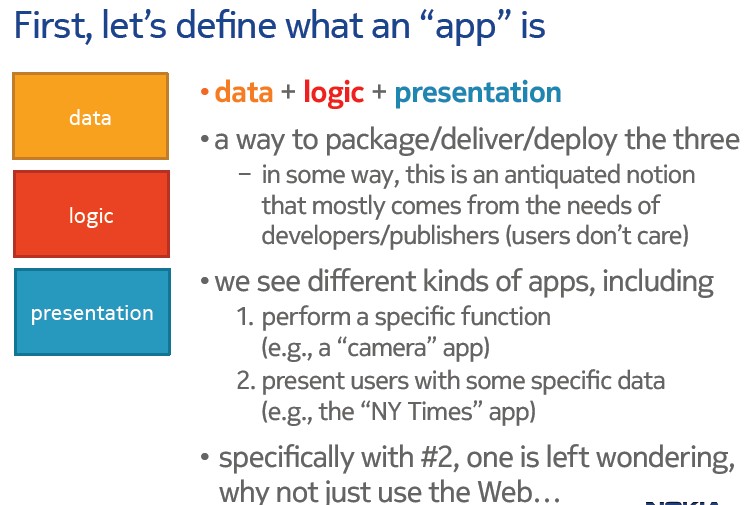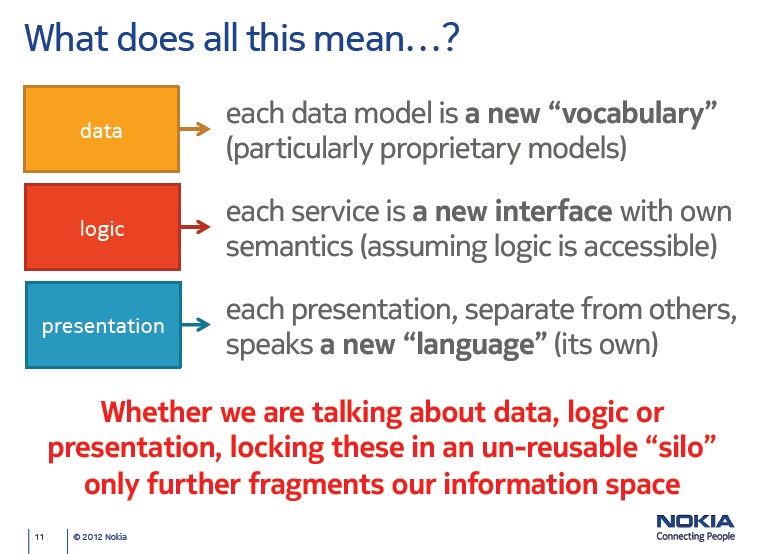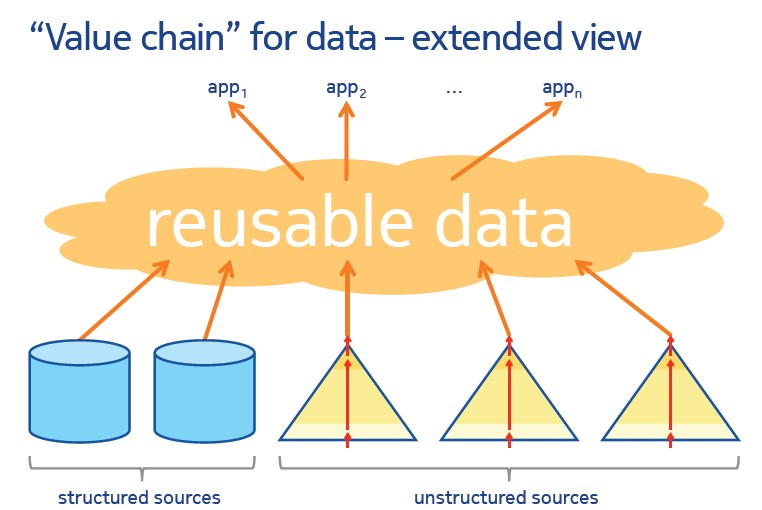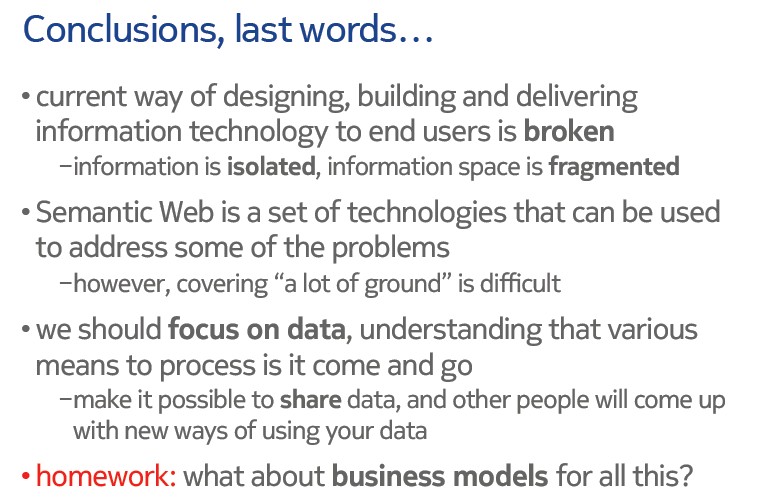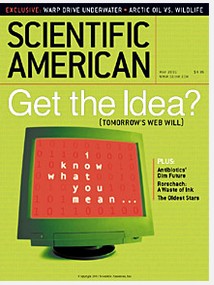The more Apps emerge in their specific stores (or silos like Apples App Store, Google Play etc) the more the discussion about the role of Apps gets intensified. Are Apps the beginning of the end of the (idea of the) Web where information flows freely (really)?
‘The essential property of the World Wide Web is its universality. The power of a hypertext link is that “anything can link to anything.” Web technology, therefore, must not discriminate between the scribbled draft and the polished performance, between commercial and academic information, or among cultures, languages, media and so on.’
This is the statement given in one of the most cited articles in Scientific American May 2001: ‘The Semantic Web. A new form of Web content that is meaningful to computers will unleash a revolution of new possibilities’ by TIM BERNERS-LEE, JAMES HENDLER and ORA LASSILA
For institutions having a mission to disseminating content (and official statistics do so) the above question is of vital interest!
Love Thy Data
Ore Lassila from Nokia and W3C focuses on this topic in a presentation he gave at a conference in Helsinki, Finland 10-14.6.2012 (CIDOC2012 – Enriching Cultural Heritage)
From the abstract of this presentation ‘Love Thy Data (or: Apps Considered Harmful)’
‘When it comes to information systems for end users, current fascination is with “apps”. … we argue that entire idea of an “app” is broken, and not something we should aspire to. Apps tend to “lock” data away from other systems to use, and by doing so contribute to the fragmentation of the overall information space. Instead, we should understand that apps come and go, but data has longevity and should be the focus of our attention. Most importantly, we should keep in mind that sharing data can lead to serendipitous reuse.’
Lassila doesn’t stop here and does more than propagating the Classic Web as standard against Apps. He goes a step further and makes the Semantic Web the standard for open data:
‘The Semantic Web is seen as a set of technologies that can address the above problems and lead us towards a future where we don’t isolate individual sets of data from others (and from other uses). Considering the richness of human culture, and particularly the cultural differences between different communities and domains of discourse, Semantic Web is probably our best bet in achieving broad reuse of data.’
Key messages
Here are the most important slides of his presentation:
.
.
.
By the way: Here’s the Article from Scientific American
http://www.scientificamerican.com/article.cfm?id=the-semantic-web
The Semantic Web. A new form of Web content that is meaningful to computers will unleash a revolution of new possibilities’ by TIM BERNERS-LEE, JAMES HENDLER and ORA LASSILA
or Google it 😉

